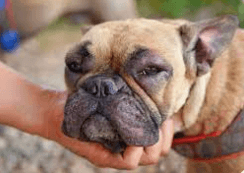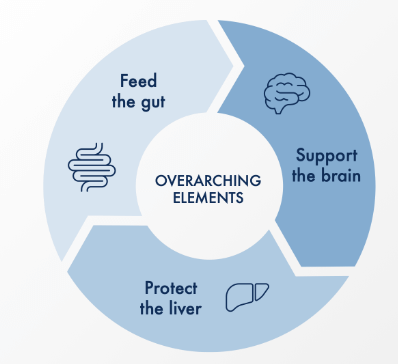Does your dog really have allergies? Or is it something else, like a vaccine reaction, also known as vaccinosis? How can you tell the difference?
Allergies are an over-reactivity or hypersensitivity of the immune system to a particular substance called an allergen, which are proteins from plants, insects, animals or foods. Exposure to the allergen multiple times throughout years or months makes the immune system sensitive to it and can sometimes cause an over-reaction. In normal dogs, the immune system will protect against infection and disease. However, in dogs with allergies, the immune system over-reacts and can cause symptoms like dermatitis or vomiting and diarrhea.
According to the VCA Animal Hospital, allergies are common in all breeds of dogs and can appear as early as six months old, but more commonly between one and two years of age. As of July 2018, the American Veterinary Medical Association stated there was a 30.7% increase in environmental allergies in dogs compared to a decade prior.
Why the significant increase in allergies over a relatively short period? Does your dog really have allergies? Or is it vaccinosis?
We think the significant increase in allergies and disease in general is due to too many vaccines and too soon. Vaccine guidelines have not been updated in over 30 years. With each parent generation of dogs that has been fully vaccinated who then reproduce and have puppies that are fully vaccinated and so on, genes have probably adapted over time. These genetic changes can make dogs more susceptible to vaccine reactions because so many toxins have accumulated in the bloodline and are passed down from generation to generation. While vaccines are important, too many and too soon could very well be the culprit for and increase in allergies.
Vaccinosis is an adverse reaction to a vaccine. It can occur immediately or appear slowly over time.
Signs of distemper vaccinosis, or an adverse reaction to the distemper vaccine include:
- Eye and nose discharge
- Conjunctivitis; vomiting
- Diarrhea and loss of appetite
- Watery feces with blood, mucous and often a foul odor
- Spasms or seizures and paralysis
- Eruptions around the mouth
- Swelling of feet often with red foot pads
- Pneumonia
- Skin eruptions
(Source: DogsNaturally)
Signs of rabies vaccinosis, or an adverse reaction to the rabies vaccine include:
- Behavior changes including restlessness, viciousness, avoidance of company, unusual affection, desire to travel, and inability to be restrained.
- Self biting
- Strange cries and howls
- Inability to swallow resulting in gagging when eating and drinking
- Staring eyes
- Swallowing wood, stones and other inedibles;
- Destruction of blankets, clothing, etc.
- Convulsive seizures
- Throat spasms;
- Increased sexual desire
- Disturbed heart function
- Excited and jerky breathing.
(Source: DogsNaturally). You can also read more about rabies vaccinosis here!
So is it really allergies or is it vaccinosis? Patricia Jordan, DVM states in her Vaccine Reaction Essay, "Animals that get yearly inoculations against everything, they are the ones often, with complete immune system annihilation and adrenal failure. They are the ones you see having to be administered Atopica, a chemotherapeutic, cell poisoning to try and incapacitate the dysregulated immune system from reacting further."
So, does your dog really have allergies? Or is it vaccinosis? You can begin to figure out the root and cause puzzle by thinking about when the symptoms first began. Ask yourself:
- When did my dog receive his/her last shots? This is an important question to think about when trying to figure out if vaccines could be the culprit.
- When did symptoms first appear? Symptoms can occur right away or even months later.
- Did my dog take any medication for those symptoms? If your dog took medication and the symptoms reappeared after taking the medication, there is a good chance it was a vaccine reaction.
If you suspect your dog does have vaccinosis, please read the following to learn how to heal your dog naturally:
Donate to Bobzilla.org

$5.00
The veterinary business is business which is not in the business of curing your animal, but Bobzilla's business is. Bobzilla is committed to one hundred percent transparency in all of its scientific research into animal wellness and prevention of disease and one… read more




